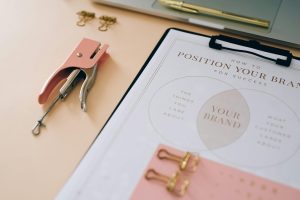The Importance of Understanding Personal Cognitive Biases
Our perceptions and thoughts are shaped by our personal cognitive biases, whether we are aware of them or not. These cognitive biases are inherent in the way our brains process information and can greatly influence our decision making. Most of the time, these biases are harmless, but when left unchecked, they can lead to faulty reasoning and ultimately affect our relationships, work, and overall well-being. Therefore, it is essential to understand these biases and learn how to manage them. In this article, we will delve into the importance of understanding personal cognitive biases and how it can significantly impact our lives.
The Concept of Cognitive Biases
Cognitive biases refer to the errors in our thinking processes that deviate from rational and logical thinking. They are a result of our brain’s attempts to simplify complex information and make quick decisions based on our past experiences and beliefs. These biases are often subconscious and occur without our awareness, making it difficult to identify and manage them.
As humans, we have evolved to rely on these cognitive biases as a way to cope with the overwhelming amount of information we encounter every day. They are, in a way, shortcuts that our brain takes to process information quickly and efficiently. However, these shortcuts are not always accurate, and this is where the potential harm lies.
The Impact of Personal Cognitive Biases
Our cognitive biases can significantly influence our perceptions, judgments, and decision making. They can cause us to overlook important information, ignore evidence that contradicts our beliefs, and even lead us to make decisions based on emotions rather than logic. As a result, these biases can contribute to conflicts, misunderstandings, and poor decisions in all aspects of our lives.
For example, let us consider the confirmation bias, where we tend to seek out and interpret information that confirms our existing beliefs. This can lead to a closed-minded perspective and prevent us from considering alternative viewpoints. Similarly, the halo effect can cause us to form a favorable opinion about someone or something based on a single positive trait, leading to biased judgments and decisions.
These biases can also have a significant impact on our relationships. They can cause misunderstandings, arguments, and resentment without us ever realizing the root cause. In the workplace, cognitive biases can affect our productivity and success. They can hinder our ability to critically evaluate situations, collaborate effectively, and make sound decisions based on facts rather than personal opinions.
The Importance of Understanding Personal Cognitive Biases
Recognizing and understanding our personal cognitive biases is crucial for our personal and professional growth. It allows us to become more self-aware and recognize when we are relying on biased thinking. By understanding our cognitive biases, we can also learn to manage and overcome them, leading to a more rational and objective way of thinking.
Understanding our cognitive biases can also help improve our relationships. By acknowledging our biases, we can avoid conflicts and misunderstandings and communicate more effectively with others. It enables us to see things from a different perspective and consider a wider range of opinions, leading to better decision making and fewer misunderstandings.
In the workplace, the importance of understanding cognitive biases cannot be overstated. By fostering an environment where individuals are aware of their biases and encourage critical thinking, organizations can promote a culture of open-mindedness, innovation, and inclusivity.
How to Manage Personal Cognitive Biases
Managing personal cognitive biases is a continuous process that requires self-reflection, awareness, and critical thinking. Here are a few tips to help you manage your biases:
1. Be aware of your biases
The first step to managing personal cognitive biases is to become aware of them. Take notice of your thoughts, behaviors, and decision-making processes and try to identify any patterns or biases that may be influencing them. Be honest with yourself and be open to change.
2. Question your assumptions
The next step is to question your assumptions. Whenever you find yourself making a judgment or decision based on a belief or preconceived notion, ask yourself if there is any evidence to support it. This will help you challenge your biases and consider alternative perspectives.
3. Seek out diverse opinions
Surround yourself with people who have different opinions, beliefs, and backgrounds. This will expose you to a wider range of perspectives and help you challenge your biases. It can also lead to more well-rounded and informed decisions.
Conclusion
Personal cognitive biases are a part of the human condition, but they can have a significant impact on our lives if left unchecked. By understanding them, we can learn to overcome them and make better decisions based on logic and evidence rather than emotions and beliefs. This not only leads to personal growth but also promotes a more inclusive and productive society. So, let us strive to become more aware of our biases and continue to challenge them for a more rational and unbiased way of thinking.










